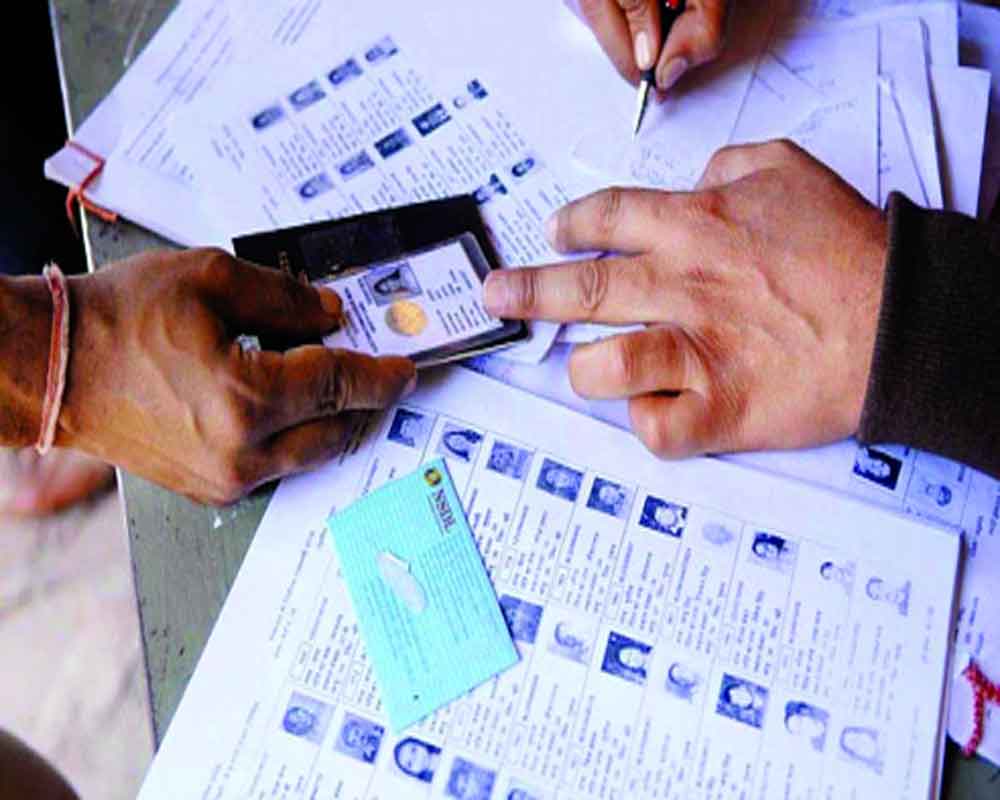A large number of voters belongs to the younger generation; their apathy towards the electoral process is a cause of concern
The country belongs more and more to its younger citizens. It is, therefore, all the more disturbing that the youth who have lately crossed the age of 18 and have registered themselves as voters in fewer numbers. The country belongs more to the younger ones who’re 18, on an overage, the country for say, sixty years more, or probably twelve general elections. To a fifty-year-old, in terms of time, he might get to see five, possibly six more general elections.
In Uttar Pradesh, our largest state only 25 per cent of the eligible youth have registered themselves as voters. What could be the reasons for this lack of desire to have a say in the running of their country? Do most young people expect Government representatives to approach them in the old maibaap fashion? Or do they feel that there isn’t likely to be much competition among the political parties for their votes? Could it also be that the younger generation has come to nurse an indifference towards the entire political process and the institution of democracy itself? Over the years, a large body of the youth of the country has come to believe that whoever comes to power, won’t make any difference to their lives, as the country’s politicians are perceived to be a class that acts only in its interest. However, in this cynicism, the youth forget that by their indifference, they abdicate their right to have a say in the running of their nation.
At the other of the age spectrum, the necessary interest in entering the political arena and playing a meaningful role in the life of the country has not been there to the extent required. Public life of a political nature had existed for some fifty years before independence. It began with the founding of the Congress by a retired British bureaucrat, Allan Octavian Hume, in 1885. The Muslim League was founded in the year 1906, the Hindu Mahasabha in 1916 and the Communist Party in 1925. Indians, therefore had the opportunity to have a feel of political public life. The motivation wasn’t power, but an idealism-driven desire for the country’s freedom. Soon thereafter, there might have been disillusion; the earlier idealism began declining rapidly. With the decline was seen a fall in ethical and social values in the country.
Could the disillusionment have been due to disappointment with the quality of politicians? Not all parties indeed have members hailing from the most educated or knowledgeable sections of society. Although the current central Government is not a rough and tumble of the hitherto political dispensations that have ruled the country, it has still not been able to overcome the cynicism about politicians and politics in general, which continues to hold sway in the minds of a large section of the people. This is not to say that good people are disinterested in politics.
We have in recent years, seen many academically and professionally qualified people enter politics; some of them have even become ministers. But clearly, there is a long way to go in this regard.
One great discouragement is the number of people in a constituency, as well as the high cost of electioneering. Hopefully, some answer to this problem should emerge from the delimitation of electoral constituencies, which would be set to increase, by (approximately) 50 per cent. No ordinary entrant can afford to spend astronomical sums of money to cultivate nearly two million voters per seat.
Delimitation and increased seats alone will not solve the problem of election expenses. Another reason why wealthy candidates are attracted to politics is the traditional belief that once elected, the candidate would be able to earn back the money spent on electioneering and thereafter generate much money. Once the doors are closed to corruption, the attraction for opportunists to become candidates would be much diminished. This also applies equally to any new avenue for making money.
Compulsory voting is a way of not only upgrading the system but also reducing the cost of electioneering. It would also eliminate the perpetuation of vote-bank politics. For example, there was a time when the total voting used to be 50 per cent or less. Therefore, if the candidate had a secure vote bank, it wasn’t difficult for him to win.
With the rise in the percentage of voting, the power and effect of a committed vote-bank is reduced. For instance, in an electorate of a lakh people, a committed vote-bank of a particular candidate is say, 25 per cent, i.e., 25,000 voters out of a population of one lakh. If the normal voting is no more than 50 to 55 per cent for that seat, this captive vote bank is assured victory for that candidate. However, if the voting percentage is 100 per cent, such a vote-bank will be of no decisive advantage.
The role of freebies has to be curbed for any meaningful participation in the political process. Freebies reduce the exercise of elections in a democracy to nothing more than bribing voters. It is then futile to talk of democracy, or why the young don’t participate in it in greater numbers.
(The writer is a well-known columnist, an author and a former member of the Rajya Sabha; views are personal)


























